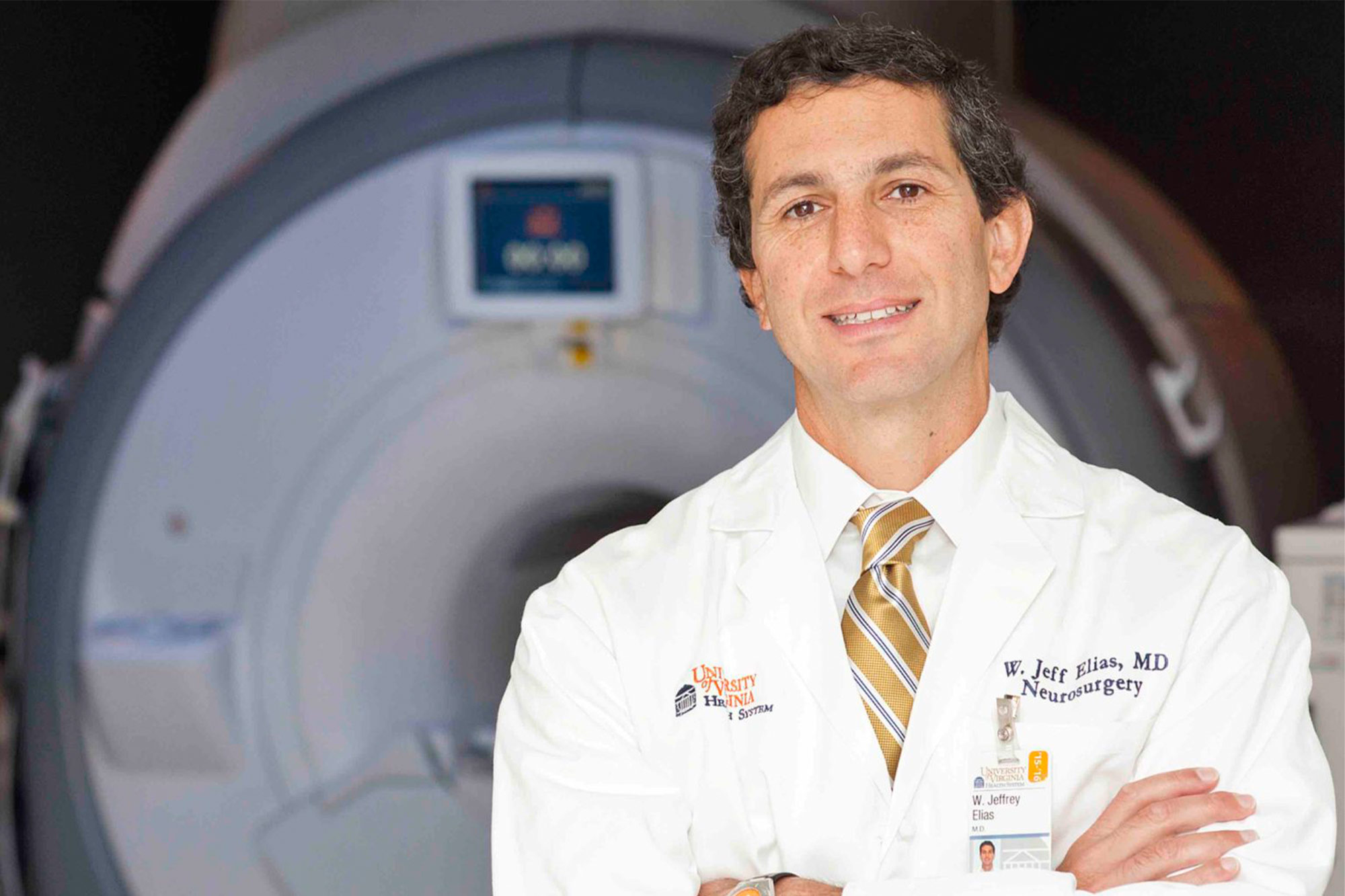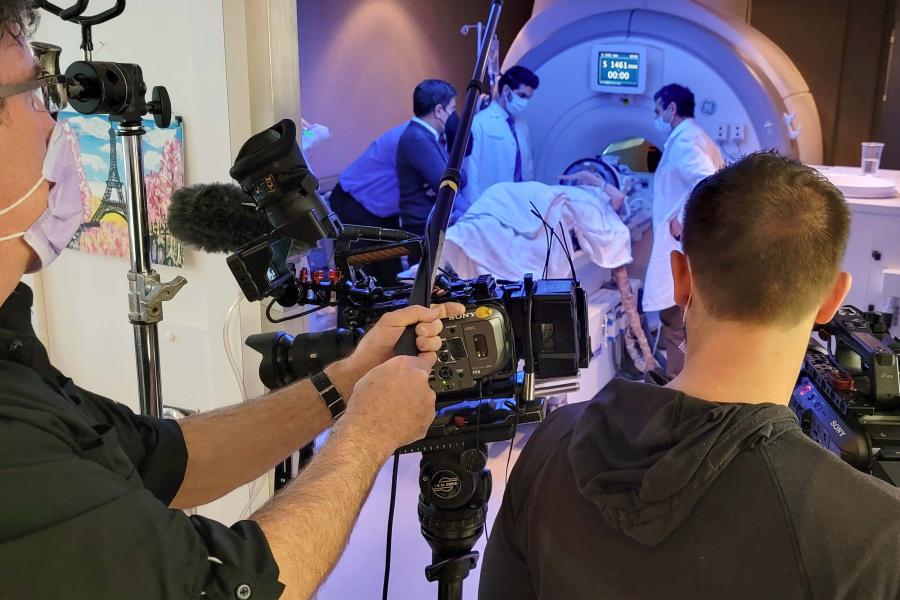Nearly 70% of Parkinson’s patients who received a high-tech, scalpel-free procedure to ease movement problems caused by Parkinson’s disease responded positively to the treatment, according to results of the major international trial recently published in the prestigious New England Journal of Medicine.
University of Virginia neurosurgeon Dr. Jeff Elias and collaborators used focused ultrasound to target an area deep within the brain called the globus pallidus. The researchers wanted to see if the focused sound waves could improve trial participants’ ability to move and reduce the unwanted shaking and rigidity associated with Parkinson’s.
Of 69 patients receiving the procedure in the randomized trial, almost 70% responded positively to the treatment. Of those, 39 continued to see significant benefits three months later and 30 continued to see benefits a year later.
Researchers say the procedure could be useful for patients who are ineligible or unwilling to receive an alternative surgery that implants electrodes deep in the brain to help manage symptoms.
The focused-ultrasound trial results were released before publication to the federal Food and Drug Administration, which expanded its approval of the technology for the treatment of Parkinson’s disease in 2021.
The procedure, however, is a treatment and not a cure.










